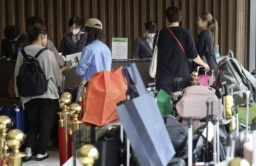-
KOSPI 2577.27 -2.21 -0.09%
-
KOSDAQ 722.52 -7.07 -0.97%
-
KOSPI200 341.49 +0.02 +0.01%
-
USD/KRW 1396 -2.00 0.14%
Aman, Rosewood, Banyan, IHG rush to open luxury hotels in Seoul
Travel & Leisure
Aman, Rosewood, Banyan, IHG rush to open luxury hotels in Seoul
With the scant number of five-star hotels in Seoul, global hotel operators seek to bask in the renewed tourist boom in Korea
By
May 05, 2024 (Gmt+09:00)
4
Min read
News+
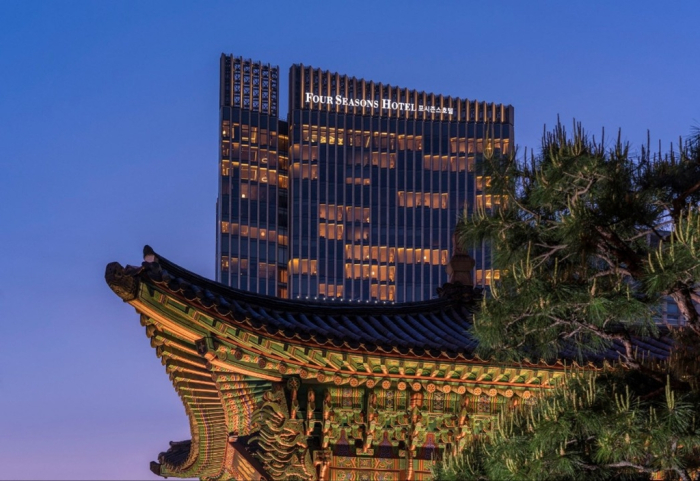
According to the hospitality industry on Sunday, Marriott International Inc., the world's No. 1 hotel chain, will take over the management rights of the InterContinental Hotel Seoul in Samseong-dong, Seoul and open a new hotel under Marriott’s premium Westin brand in the second half of this year.
Currently, Marriott operates two five-star Westin hotels in Korea in partnership with Shinsegae Group – one in central Seoul and the other in Haeundae, Busan.
Marriott usually doesn’t open two Westin hotels in a city but has decided to launch another five-star hotel in Seoul to meet growing demand, industry officials said.

Aman Group, a Swiss-headquartered multinational hospitality firm, is slated to open a luxury hotel under the Janu brand near Seoul Station by 2027. The Janu Seoul will become Aman’s sixth luxury hotel under the premium brand across the globe.
Rosewood Hotels & Resorts, owned by Hong Kong-based Rosewood Hotel Group, plans to open a 250-room hotel at Parkside Seoul, a mixed-use neighborhood to be built on the site of the United Nations Command in Itaewon, Seoul.
Singapore’s Banyan Group, globally known for Banyan Tree Club & Spa, is scheduled to open a Homm Hotels & Resorts in Sokcho, Gangwon Province, in July – Banyan’s first in Korea and seventh globally under the Homm brand.
InterContinental Hotels Group, known as IHG Hotels & Resorts, will soon open a luxury hotel under its voco brand in Myeongdong, central Seoul, in addition to its already operating voco Seoul Gangnam – in a posh district in the capital city.
The Unbound Collection by Hyatt and European giant Accor’s Grand Mercure Ambassador Hotel in Magok are expected to begin operations by the end of this year.
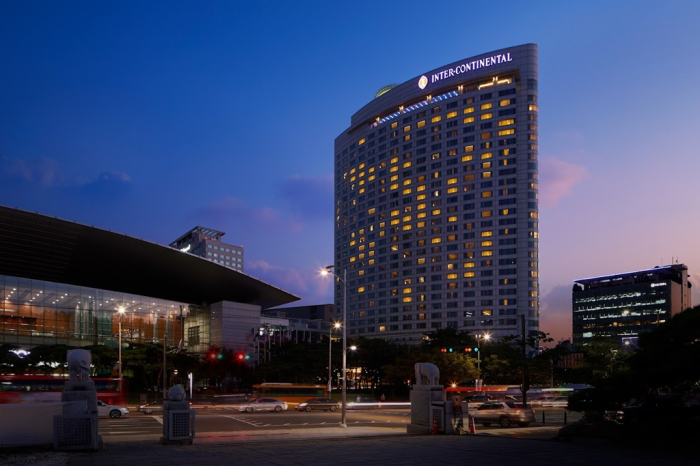
FILLING VOID LEFT BY THAAD DISPUTE, PANDEMIC
Analysts said Korea’s hotel industry is set to enjoy a boom following rigorous restructuring in the wake of Beijing’s retaliation against Korea’s decision to deploy THAAD, a US air defense system, in Korea – a potential military threat to the mainland, and the global COVID-19 pandemic.
“Hotels mushroomed in Korea from 2014 to 2018 with Chinese tourists flocking to the country. The bubble, however, busted, followed by the pandemic. Now, another boom is looming and hotel operators are moving quickly to seize new growth opportunities post-pandemic,” said an industry official.
A wind of change began blowing last year with foreign tourists resuming their trips to Korea en masse.
According to the Korea Culture and Tourism Institute, foreign travelers to Korea have steadily increased from 970,000 in 2021 to 3.2 million in 2022 and 11 million in 2023.
The institute expects the number of incoming foreigners to reach 20.5 million next year and 22.69 million in 2026.
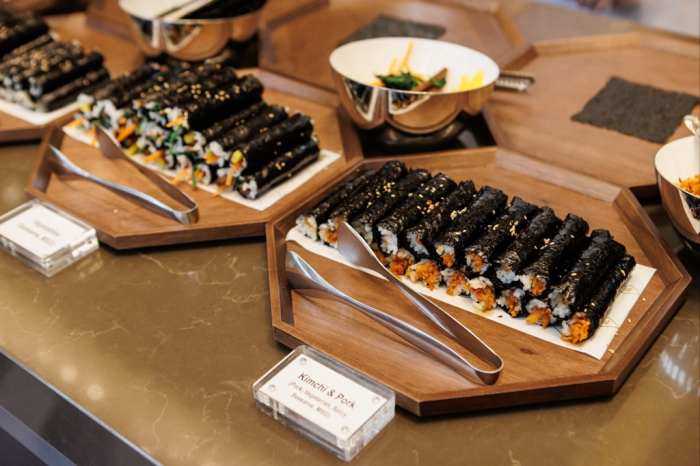
In recent weeks, hotels and casinos in Korea said their rooms are fully booked, mostly because of tourists from Japan and China.
Seoul was among the top five Asian travel destinations along with Tokyo, Bangkok, Hong Kong and Taipei during regionwide holidays in early May, according to Trip.com Group, a Singapore-based online travel agency,
KOREAN HOTELS POST RECORD EARNINGS
Korea’s homegrown hotels are already enjoying the return of tourists following years of COVID-19 restrictions.
Lotte Hotels & Resorts, the country’s largest hotel chain operator, posted record sales of 1.3 trillion won ($957 million) on an all-time high operating profit of 71.2 billion won in 2023. Lotte had been in the red for seven straight years from 2015.
Josun Hotels & Resorts, owned by Korea’s retail giant Shinsegae Inc., saw its 2023 operating profit double to 40.3 billion won from the previous year’s 22.2 billion won.
Hotel Shilla Co., affiliated with Samsung Group, posted record sales of 634.7 billion won with an operating profit of 68.7 billion won last year.
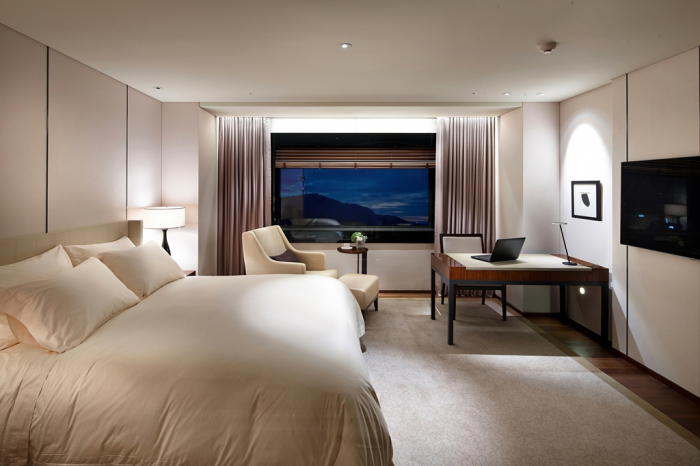
Analysts said Seoul lacks top-notch hotels – a magnet for global hotel operators to build new ones.
According to Forbes Travel Guide, dubbed the hotel version of the Michelin Guide, only two hotels in Seoul were graded five-star status this year – Four Seasons Hotel and Shilla Hotel.
That compares with 22 in Macau, 20 in London, 12 in Paris and nine in Tokyo.
Data from global market research firm Statista show the sales revenue of Korea’s hotel industry dropped to 4.45 trillion won in 2020 from a high of 9 trillion won seen before the outbreak of the pandemic.
However, Korea’s hotel industry is forecast to exceed 12 trillion won by 2025 after posting 10.2 trillion won in 2023, according to Statista.
Write to Young Chan Song at 0full@hankyung.com
In-Soo Nam edited this article.
More To Read
-
 Travel & LeisureKorean retailers, hotels enjoy tourist boom in May holidays
Travel & LeisureKorean retailers, hotels enjoy tourist boom in May holidaysApr 30, 2024 (Gmt+09:00)
-
 Corporate bondsHanwha Hotels & Resorts credit rating upgrades to A-
Corporate bondsHanwha Hotels & Resorts credit rating upgrades to A-Mar 21, 2024 (Gmt+09:00)
-
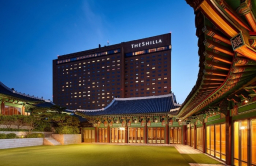 Travel & LeisureSouth Korea’s luxury hotels bask in return of tourists post-pandemic
Travel & LeisureSouth Korea’s luxury hotels bask in return of tourists post-pandemicFeb 20, 2024 (Gmt+09:00)
-
Dec 29, 2023 (Gmt+09:00)
-
Apr 28, 2023 (Gmt+09:00)
-
 Travel & LeisureStay-in-hotel trend for the holidays revs up luxury hotels
Travel & LeisureStay-in-hotel trend for the holidays revs up luxury hotelsJan 17, 2023 (Gmt+09:00)


